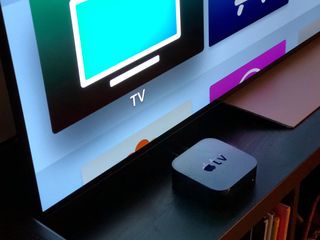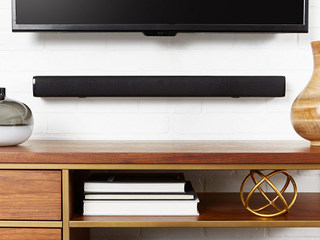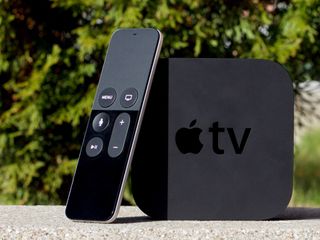Should you care about Dolby Atmos support coming to Apple TV?

When tvOS 12 hits the Apple TV 4K in the fall, it will be the only streaming device that has both Dolby Atmos and Dolby Vision on board. Apple made a big deal about the technology coming over to its streaming box, but what does it mean?
Here's a quick breakdown of what Dolby Atmos brings to the table and whether you not you should care about it.
What is Dolby Atmos
To fully explain how Dolby Atmos functions, I'd probably need a couple of pages, but to save us a bit of time, here's an extremely simplified version.
Audio in a movie is typically split into channels, such as left, right, center, etc. These channels direct the sound to go to certain speakers. If you hear two people talking, likely their voices are more prominent in the center channel (AKA the center speaker). If there's a car crash off-screen to the left, you'll like hear that noise coming from the left channel and the left surround channel, thus allowing our brains to process where the sound is coming from and giving us a sense of direction.
Dolby Atmos allows sound engineers to split the audio into "areas" as well as channels. So if a gun goes off to the right of the screen, the sound engineers can designate the sound is coming from the "rear right corner," rather than the right channel, which by extension, comes from the right speaker. Basically, it gives the sound designers more flexibility to direct sound to specific locations and lets them control the audio's presence much more directly. This sounds simple enough, but the difference between your standard 7.1 surround sound system at home and the system in your local movie theater is huge.
Since 7.1 surround sound systems have been making their ways into homes more and more, consumers have been craving that authentic movie theater sound for everything they watch at home and Dolby Atmos is able to provide that experience you'd normally only get at a theater.
In short, if you have everything you need to take full advantage of Dolby Atmos, your movies are going to sound amazing, and the audio will almost take on a life of its own, as it fills the room in a much more organic way. The sound will truly feel all around you, not just on the sides or behind you, but even above and below you to an extent.
Master your iPhone in minutes
iMore offers spot-on advice and guidance from our team of experts, with decades of Apple device experience to lean on. Learn more with iMore!
What do you need for Dolby Atmos?

Speaking of which, if you want to take full advantage of Dolby Atmos; you need quite a bit of hardware to make it work.
First of all, the source of the audio needs to have a Dolby Atmos soundtrack, meaning at home, the Blu-ray or digital movie format you're watching.
Second, you'll need that source to be coming from a device that supports Dolby Atmos, like your Apple TV 4K running tvOS 12.
Lastly, you need speakers that supports Dolby Atmos, and since this is a newer format, you'll likely need more modern speakers.
Do iTunes movies even have Dolby Atmos?
As of right now, probably very few, if any, of the movies you have purchased on your Apple TV employ Dolby Atmos; however, Apple isn't throwing you out to the cold.
Much like they have been doing with 4K HDR content, if you purchase a movie on iTunes that later on gets a Dolby Atmos soundtrack, Apple will upgrade your version free of charge.
Is it worth upgrading all my equipment?
That mostly depends on how much you love audio. For the vast majority of people, Dolby Atmos won't make enough of a difference to justify buying a new sound system.
Of course, if you are a diehard audiophile, and you've been waiting for Apple to make this move, having Dolby Atmos and Dolby Vision on the Apple TV 4K pretty much makes it the ultimate media streaming device capable of delivering that true cinema experience you crave.
Plus, as I mentioned before, if you buy a lot of your movies and other media through iTunes, Apple has got your back offering free upgrades if and when Dolby Atmos soundtracks come out for the titles you own. Thus, its a pretty great way to future-proof your media collection.

Luke Filipowicz has been a writer at iMore, covering Apple for nearly a decade now. He writes a lot about Apple Watch and iPad but covers the iPhone and Mac as well. He often describes himself as an "Apple user on a budget" and firmly believes that great technology can be affordable if you know where to look. Luke also heads up the iMore Show — a weekly podcast focusing on Apple news, rumors, and products but likes to have some fun along the way.
Luke knows he spends more time on Twitter than he probably should, so feel free to follow him or give him a shout on social media @LukeFilipowicz.
Most Popular




